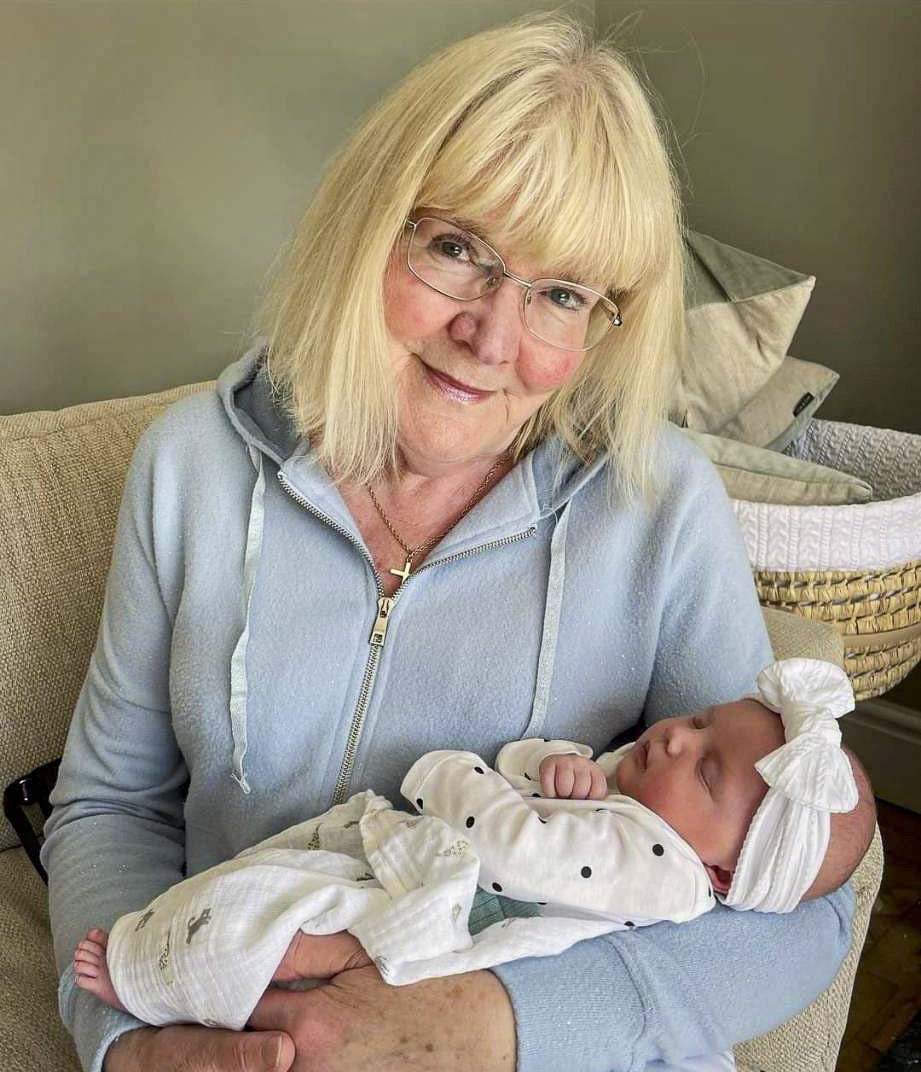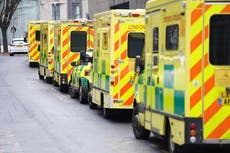Great-grandmother with broken hip taken to hospital on gritter lid as she ‘was not eligible’ for ambulance
Pamela Rolfe was taken to hospital by her family using a white van

The family of a great-grandmother who broke her hip were told she was not “was not eligible” for an ambulance so they took her to the hospital themselves - on a gritter lid in a white van.
Pamela Rolfe, 79, was walking her dog when she fell on 29 December and passersby helped keep her warm by putting a duvet over her.
As the weather became windy and rainy her daughter Dawn Hamilton, 58, phoned to see where the ambulance was - and was stunned to be told “due to the current crisis at the moment she doesn’t qualify for an ambulance”.
Ms Rolfe was walking her dog when she fell. Ms Hamilton’s partner had recently rented a white van and they looked for an ironing board to place Ms Rolfe on, but instead tore the lid off a gritter box.
The great-grandmother-of-two from Johnstown, Wales, is now in a wheelchair with no idea when she will be discharged from Wrexham Maelor Hospital.
A 93-year-old woman in the same ward, who broke her hip at home, was left waiting more than 33 hours for an ambulance, the family said.
Mother-of-three Ms Hamilton said: “My mum fell at 11am, due to us doing our own ambulance service she was in a bed by 7pm.
“I got there around 12.30pm and she was all covered up in a duvet. It was starting to rain and it was cold and windy.”

“I called the ambulance service for an update and was told ‘due to the current crisis at the moment she doesn’t qualify for an ambulance’,” she continued.
“One of the first rules is not to move someone. A man in the park said someone had died on the floor waiting for an ambulance recently.
“My partner had hired a white van, we were looking for an ironing board to support my mum’s leg.
“A neighbour ripped the lid off a gritting container and put it under my mum. We drove to where the ambulances were in A&E and a paramedic who is also a neighbour helped put her on a trolley.
“She got through straight away and had an operation the next day. I couldn’t believe A&E, there were queues outside the door.
“We were told someone was in an ambulance for 24 hours. If my mum had got in an ambulance she would have been stuck outside A&E, she could be dead.
“She’s 80 this month, it was in a park, it was exposed, it was windy and starting to rain - if she had fallen inside there would have been pain management but she would have been warm.”
Once inside the hospital, the family says the nurses were “fantastic”, as were the paramedics who helped get her on a trolley.

Stephen Sheldon, Service Manager in North Wales for the Welsh Ambulance Service, said: “We are deeply sorry to hear about Mrs Rolfe’s experience, and know how distressing it will have been for her and those around her as they waited for our help.
“Unfortunately, her experience is not unique, and while that doesn’t lessen the distress for Mrs Rolfe, it is symptomatic of the pressures that all elements of the health and care service in Wales – and across the UK – are facing.
“It is not now uncommon for in excess of 30 per cent of our available crews to be tied up at hospitals waiting to hand over the care of patients.
“This means they are unable to get to patients in the community like Mrs Rolfe, resulting in very long waits for us to arrive.
“While we try to treat as many people as we can at scene, or access alternatives to the emergency department, this is often not possible or appropriate, which means our patients and crews end up at hospital.
“There are now some 1,700 patients in hospitals across Wales who are ready to be discharged, but cannot go home as the appropriate care and support is not available for them in the community, so we have a vicious circle of patients being stuck in hospitals, meaning fewer beds for admissions, longer waits outside hospitals and fewer ambulances available in the community.
“This is not the level of service we want to provide and we are working hard to improve things as a matter of urgency.
“We wish Mrs Rolfe all the very best for a speedy recovery, and invite her or her family to contact our Putting Things Right team to afford us the opportunity to listen to their experience in more detail and investigate appropriately.”
Join our commenting forum
Join thought-provoking conversations, follow other Independent readers and see their replies
Comments

Bookmark popover
Removed from bookmarks